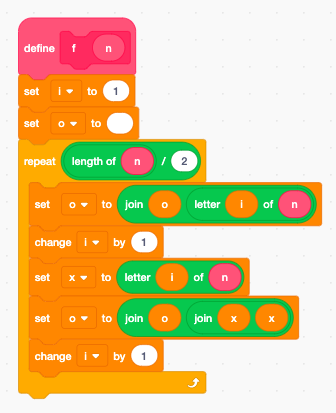Requirements:
- Take a single word as input with only lowercase alphabetical characters (a-z)
- Output a string where every other character is repeated, with the first repeated character being the second character in the string
Example:
Input: abcde
Output: abbcdde
Winning Criteria:
Standard code golf. Shortest number of bytes in program wins.
Clarification:
For languages with 1-based indexing the output must still match the above, aabccdee is not an acceptable solution.



1as the first character, for the benefit of languages with1-based indexing? \$\endgroup\$